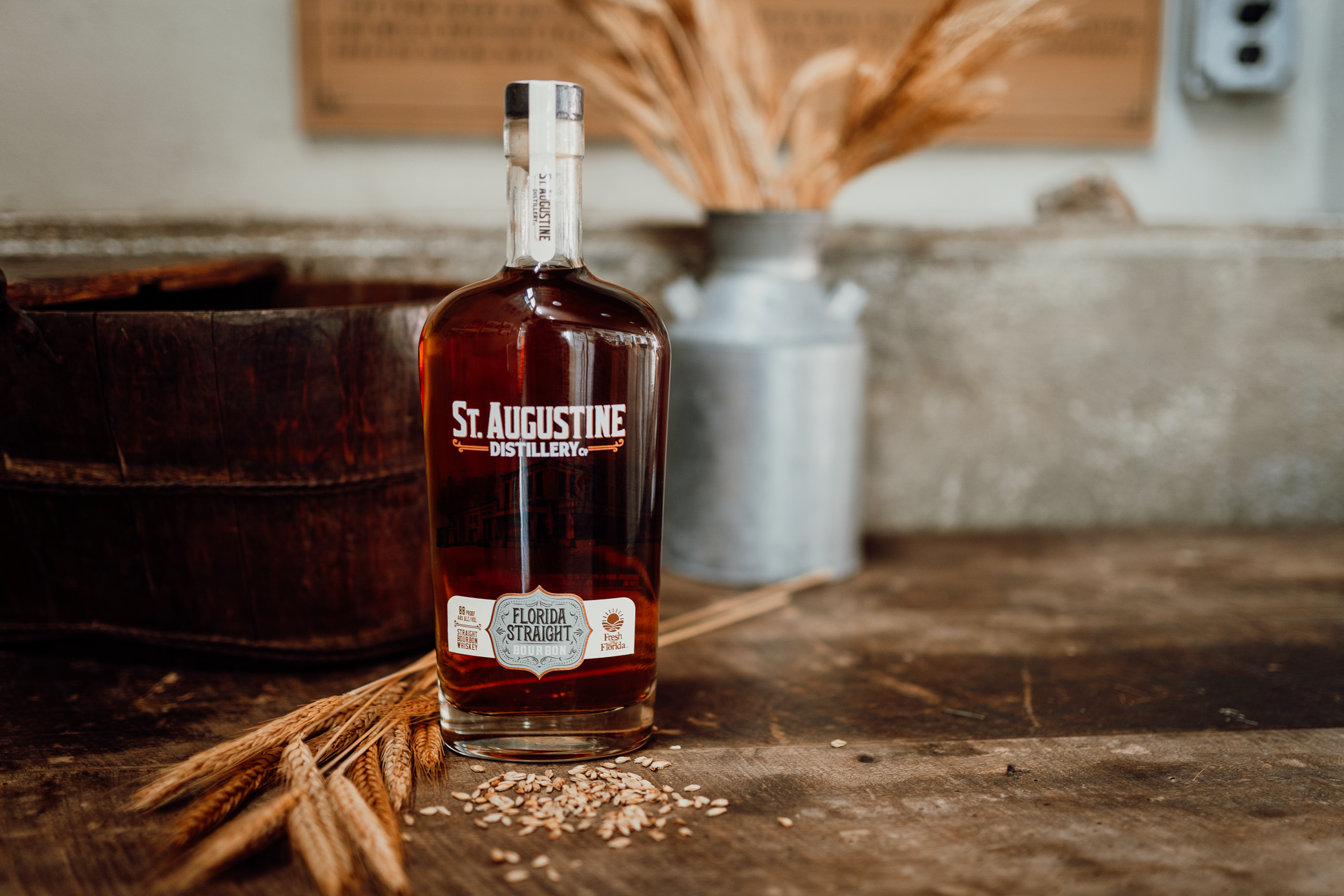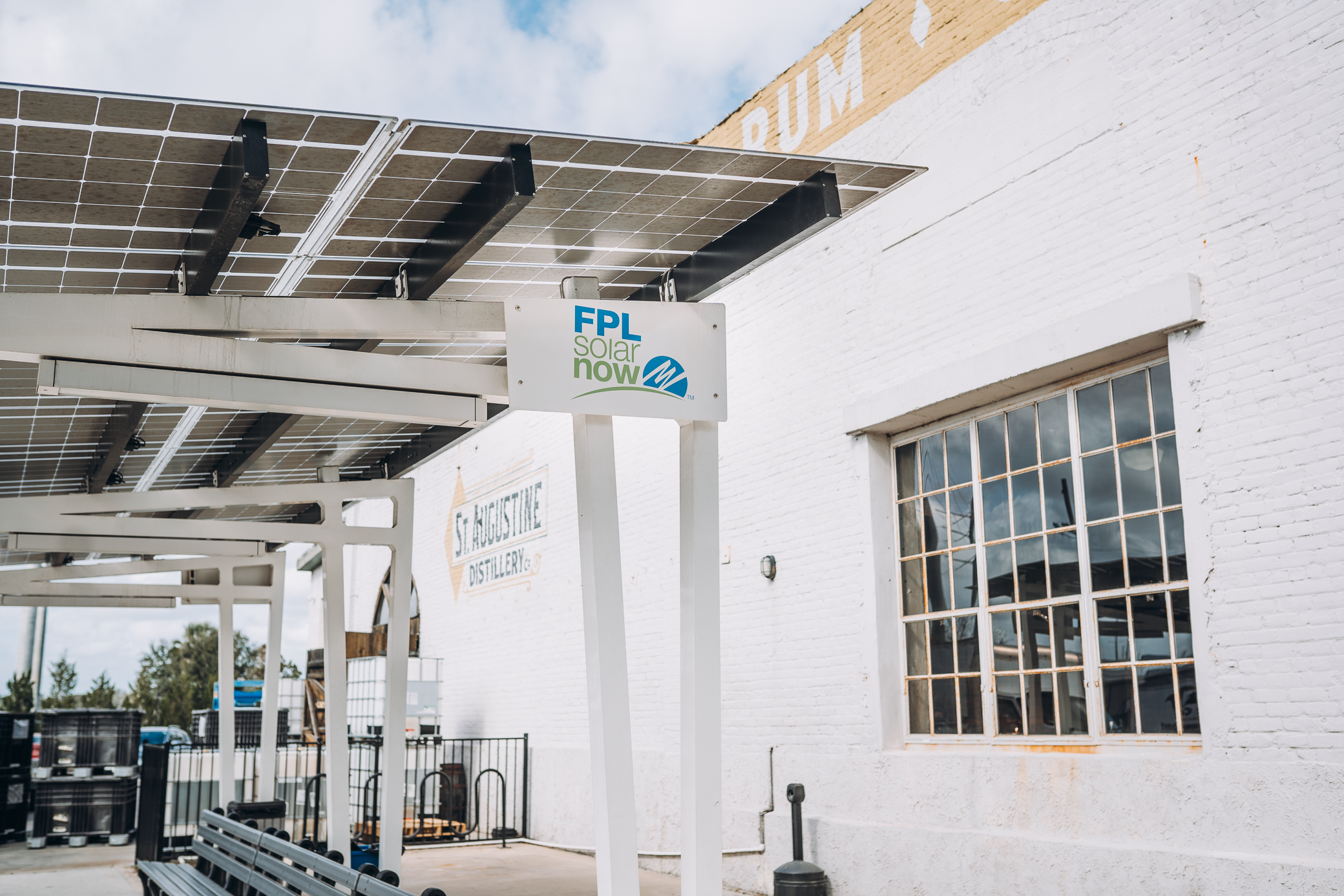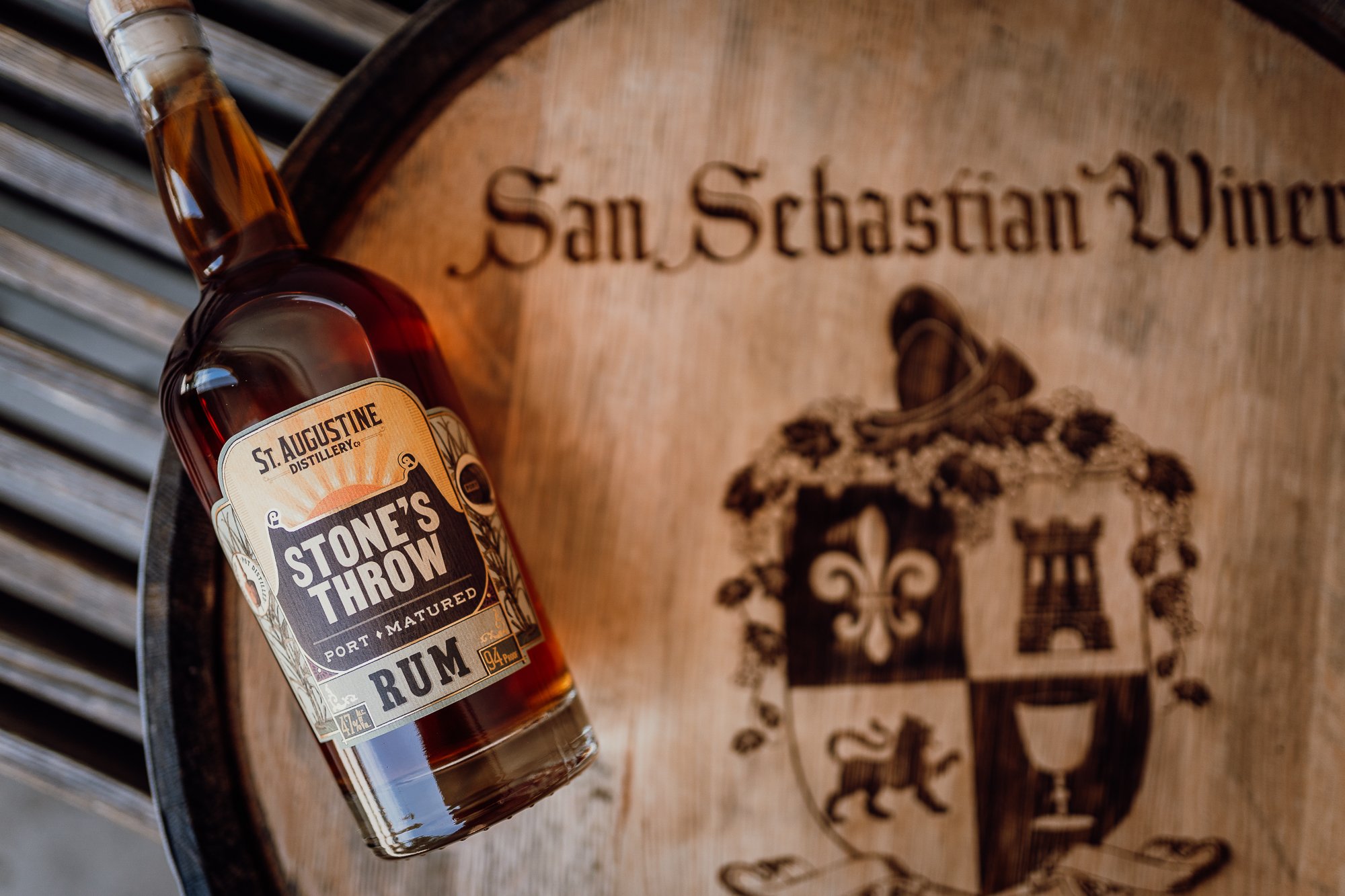Sustainable Spirits: 5 Ways We Protect Our Planet
St. Augustine Distillery is proud to commit to sustainability every day. Step behind our production lines and learn more about how we preserve our community and planet!
From grain, to water, to energy, there’s a lot that goes into creating The Spirit of Florida®. When our co-founders first began to produce spirits at our home on Riberia St, they realized that the distillation process consumed a lot of resources and generated significant waste. Sustainability, which is an integral part of our mission, allowed us the opportunity to reuse, repurpose, or recycle many of the byproducts of distillation.
In honor of Earth Day, we’re diving deep into some of our sustainable practices and showing how we work with local businesses and farmers to reduce waste and create some truly unique products. Here are five ways that we practice sustainability in our day-to-day operations!
Our Building
Our operations and production take place inside the four walls we now call home: A repurposed ice plant originally built in 1917 by Florida Power & Light (FP&L). We love the fact that a century ago, our building was making the first commercial ice in Florida and today we are making the first (and finest) bourbon in the Sunshine State. As a contributing building to Lincolnville's designation on the National Historic Register, saving our building was the step in our journey to fulfill our passion to operate sustainably. Rather than tear down and rebuild the structure, our co-founders chose to preserve as many elements of the original building as possible. We are proud to be recognized by the Urban Land Institute of North Florida for our efforts to repurpose and adapt the ice plant while maintaining the original structure.
Our Water
Distilleries are notorious for using large amounts of water. When our co-founders traveled to Colorado to create the first barrels of St. Augustine Distillery’s mash bill, they were shocked by the amount of water used in the process: aside from cooking the mash itself, it is used to cool the mash and clean the distilling equipment. Upon returning to St. Augustine, our co-founders asked consultant Dave Pickerell to design a process that would minimize the amount of water used throughout the process.
Our water-saving efforts begin with the water used to cool the mash. Yeast can only be added once the mash reaches 100 degrees, far lower than the cooking temperature. Inside the mash tank is a large coil, which is filled with cool water once the cooking finishes. That water absorbs the heat and, in many cases, is drained out. Our system, however, pumps this warm water directly into an insulated holding tank, where it is stored for the next mash cook. Not only does this save water, it also saves energy: starting our cook with warm water means less time to heat the mash!
Once the mash is cooled and fermented, it is distilled in our stripping and spirit stills. Many distilleries use a free-flow water system to chill these stills, which involves running a continuous stream of cool water that is inevitably drained out. Our system uses a closed-loop glycol chiller, effectively eliminating a large source of water waste within the distillation cycle.
Every bottle of spirits we produce pays homage to our home state’s natural resources. We strive to protect this ecosystem by using these resources responsibly, and reinvesting in sustainable measures at every step of our production process.
Our Energy
Powering our stills, fermentation tanks, and the rest of our distilling equipment is no small task. That’s why St. Augustine Distillery turns to alternate energy sources, including natural gas and renewable solar power, in order to maintain production while minimizing environmental impact.
Our solar canopy, powered by the FP&L SolarNow initiative, sits just outside our distillery where it harvests and stores energy from the bright Florida sun. All energy generated by the group of 18 panels goes back into our community, helping us offset our energy footprint. As of writing, our distillery’s canopy has generated 12.68 megawatt hours, enough to power over 10,000 homes for a year! We honor our partnership with educational initiatives, as well as multiple events, like our solar tree lighting ceremony, throughout the year.
When designing our distillery, our consultant Dave Pickerell determined that we could achieve greater efficiency with a gas-powered boiler rather than one powered by electricity. However, at the time, St. Augustine did not have natural gas extending to the downtown area, which would mean constructing a massive (and unsightly) propane tank on the property. Luckily, thanks to a conversation with Bob Porter from the St. Johns County Chamber of Commerce, our co-founders soon discovered plans by the TECO Gas Company to provide gas services to nearby Flagler College.
After connecting with TECO and explaining the need for natural gas at our distillery, they became eager to support our mission. Soon, they laid the first ever natural gas pipeline from King Street to our building. This allowed us to connect our boiler directly, and avoid the costly and unsightly propane tank! Since then, multiple businesses on our street, including the Ice Plant Bar and The St. Augustine Seafood Company, have connected to the same gas line and now operate a cleaner and more sustainable business.
Our Agriculture
Whenever possible, we strive to source our agriculture from right here in the Sunshine State. We’re proud to use corn, wheat, and sugar cane, among others from Florida farmers as part of our distillation process, which helps us to create unique spirits while supporting local businesses. It also ensures the preservation of important Florida crops that help balance our state’s unique ecosystem.
Additionally, our partnership with Florida farmers helps us dispose of our “distillers grains”, or the leftover corn, wheat, and barley that provided the essential sugars during the mash cooking process. Many distilleries pay large fees to dispose of these grains; Instead, St. Augustine Distillery partners with a Florida farmer who picks up the grain to use as livestock feed. This creates less waste, and also allows us to support the farmers who provide us with local agriculture for our spirits.
Our Barrels
We source our barrels from the world-famous Kelvin Cooperage in Louisville, KY. Not only are they renowned for their quality and craftsmanship, they also share our passion for sustainability.
Kelvin Cooperage proudly supports the White Oak Initiative, a nonprofit organization dedicated to protecting the American White Oak, one of the most abundant and economically important trees in the world. These trees provide the wood for Kelvin’s barrels, and they are one of many companies dedicated to preserving these trees and replenishing those that are harvested for commercial purposes.
Our barrels are a beacon of our mission to reuse and repurpose our waste. After getting as many uses as possible for our own spirits, we exchange barrels with local businesses like San Sebastian Winery, Old Coast Ales, and The Kookaburra Coffee Shop, who create unique beers, wines, and coffees with our barrels. We also partner with local vendors to sell a variety of bourbon barrel products, including maple syrup, bbq sauce, and honey. By extending our barrels’ lifespan, we can help to preserve our nation’s American White Oak forests while creating unique products that honor our city’s rich culture.
To learn more about St. Augustine Distillery and our sustainability initiatives, visit our website or schedule a tour. Happy Earth Day!








